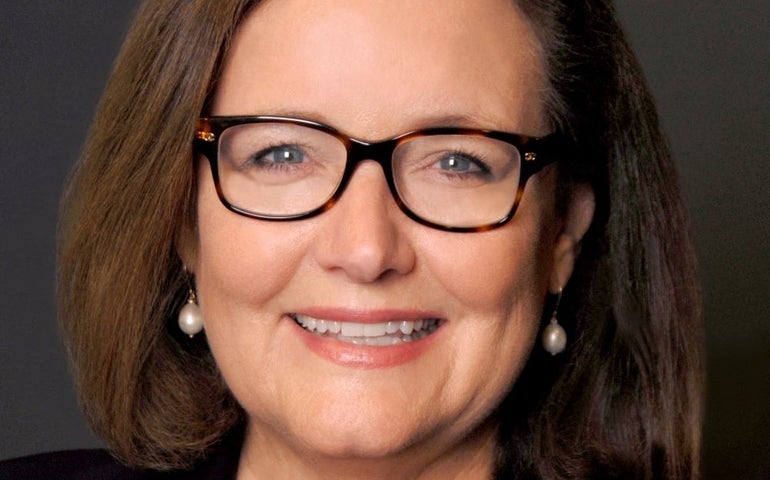Residents are in for a “very choppy summer” as the state’s massive redetermination effort to gauge eligibility for 2.4 million MassHealth members unfolds, Health and Human Services Secretary Kate Walsh said Thursday.
“People are going to show up for their kids’ school physical (examinations) and hear they’re not enrolled, and that’s what we’re trying to avoid,” Walsh said during a virtual Massachusetts Health Connector Board of Directors meeting.
The volume of residents enrolling in MassHealth coverage without needing direct member contact from state officials or from vendors is falling short of expectations so far, Walsh said.
To make the redetermination effort “work in any reasonable kind of way,” Walsh said, officials had estimated about 50 percent of people subject to review would need their MassHealth coverage to be automatically renewed. But at this point in the year-long process, Walsh said that figure is around 42 percent.
Instead of receiving blue envelopes in the mail asking about proof of income or other information, people are automatically renewed for MassHealth if they are well below the federal income threshold for Medicaid or are receiving assistance from a different government program that automatically makes them eligible for Medicaid, a Healey administration health official told the News Service.
The state is creating new parameters meant to increase the number of automatic MassHealth renewals, the official said, including using more data sets to ascertain eligibility.
“We’ve already seen in certain recent weeks that the auto-renewal rate is at least moving in the right direction,” Mike Levine, assistant secretary for MassHealth, said in an interview after the board meeting. “The reason you want that number to be high is because we want to reduce the burden on members eligible for coverage, we want to reduce the number of calls coming into our call center, we want to reduce the number of pieces of mail we are processing so that we are able to efficiently serve everyone else. So if there is a version of the world where you don’t have to take action to keep coverage while being eligible, that’s a better version.”
Meanwhile, the on-the-ground campaign to inform residents about the redetermination process is “very high touch,” Walsh said as she acknowledged the efforts of volunteers from nonprofit Health Care For All and other community-based organizations.
“It’s almost absurdly high-touch — it’s almost torture because the forms are so hard,” Walsh said at the meeting.
For the first time since the COVID-19 pandemic began, states across the country must figure out which members of their Medicaid programs are still eligible to receive the publicly funded health insurance coverage. Healey administration officials expect 300,000 to 400,000 people will fall off the MassHealth rolls, which combine Medicaid and the Children’s Health Insurance Program, over the course of the year-long redetermination process.
Nearly 8,000 people have joined the Health Connector since redetermination began in April, which is about 23 percent of the population that has lost MassHealth coverage but qualifies for a Health Connector plan, said Marissa Woltmann, chief of policy at the Health Connector. Woltmann described those individuals as a “very proactive population.”
Woltmann said staff wants to dive deeper into the other 71% percent of people who are eligible but haven’t selected a plan yet to understand what barriers they face and if they “truly need coverage,” including for residents who may have enrolled with employer-sponsored coverage. It’s also still “very early days for MassHealth,” said Walsh, who added that the board may need to reconvene if there are surprises in the data.
Based on “relatively aggressive” estimates, Woltmann said the Health Connector could see a net growth of some 135,000 members by next June. Yet she cautioned that forecasts are “highly uncertain” due to the unprecedented process underway.
“But this is consistent with our goal of helping individuals maintain coverage if they lose MassHealth, and we’re planning for outreach and member support that are commensurate with this level of growth,” she said. “As we move forward, we’ll continue to monitor both enrollment gains, as well as look at who’s not enrolling with us.”
Anticipating swelling demand at the Health Connector call center, the board approved a six-month contract of up to $3 million with Maximus Human Services, which will be tasked with providing back-up support for paper processing and outbound calls, said Patricia Grant, the Health Connector’s chief operating officer.
Board member Rina Vertes didn’t support the contract, saying she needed a better understanding of enrollment projections and whether they were achievable. But board member Nancy Turnbull said choosing not to bolster call center capacity would be “irresponsible and dangerous to our goal of keeping people in the coverage.”
Public activities to raise awareness about the redetermination process are ramping up this month, including an enrollment event at Fenway Park this weekend, said Jason Lefferts, the Health Connector’s director of communications and public affairs. Lefferts said paid media will also hit its “full stride” this month, with digital, print and radio advertisements already launched and television spots coming soon.
May marked the first month of robocalls, which will be used several times monthly moving forward. Emails are also seeing high open rates, Lefferts said.
The messaging is statewide and seeks to emphasize the Health Connector is the “only place to get help paying for health insurance,” as officials remain wary of potential scams.
“I’m not aware of any recently — it is a consistent issue for us,” Lefferts said. “We fight the good fight with search engine optimization to be first and high. If somebody went and Googled ‘cheap health care Massachusetts’ or ‘cheap health insurance Massachusetts,’ chances are the first four or five links are going to be sponsored by scam websites.”

